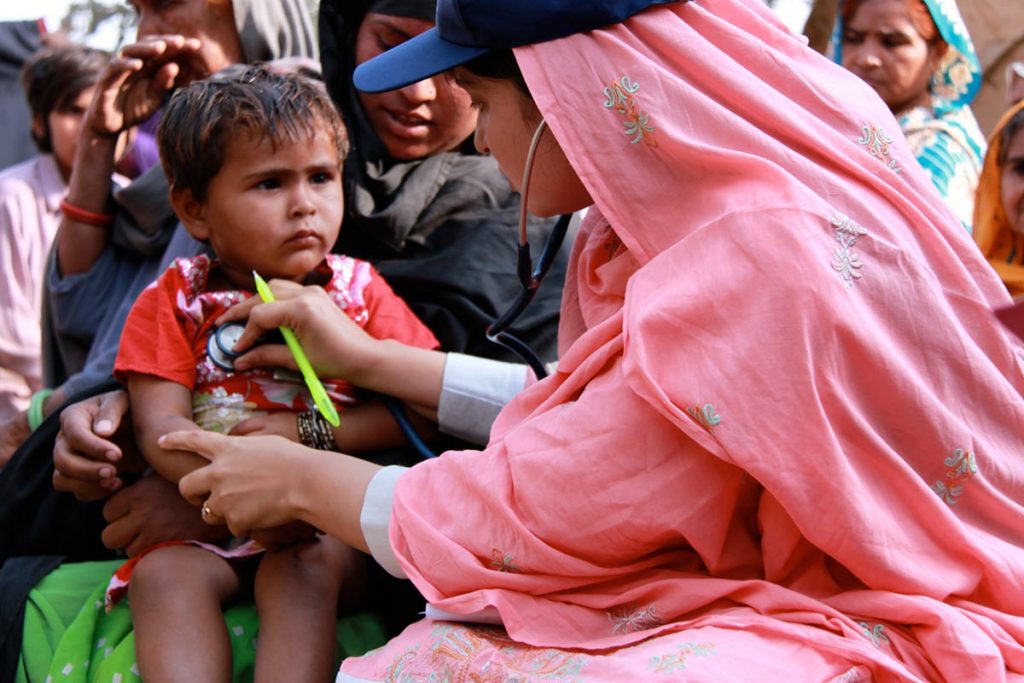
Pakistan
Pakistan is plagued by both ongoing instability and recurrent natural disasters that uproot families from their homes and destroy livelihoods. Military operations continue in the Federally Administered Tribal Areas (FATA), while floods and earthquakes are common.
International Medical Corps has worked in Pakistan since 1985, with our first program focusing on basic paramedical training to young Afghan refugees, who then returned home to treat neglected populations. This training was extended to Pakistanis living in volatile frontier areas in 1999 and we have since responded to major disasters throughout the country. When a massive earthquake struck the region in 2005, claiming more than 70,000 lives, our medical response teams were on the scene, treating survivors, within 12 hours.

252 million
70 years
21,000 (est)
The Challenges
Our Response

Health Services and Support
Today, International Medical Corps works in several districts of Khyber Pakhtunkhwa Province, providing the following services for Afghan refugees and vulnerable Pakistanis:
- mental health and psychosocial support (MHPSS);
- gender-based violence (GBV) prevention and response services;
- community education and awareness-raising about health issues;
- capacity-strengthening of healthcare providers;
- primary healthcare and essential medicines, equipment and supplies;
- WASH-related health and hygiene services; and
- skills training for women through the Women’s Economic Empowerment initiative.
In 2023, International Medical Corps provided primary healthcare, including maternal healthcare, and essential medicine, equipment and supplies to more than 124,500 people from flood-affected communities in the Charsadda district of Khyber Pakhtunkhwa province and in the Jamshoro, Dadu and Mirpur Khas districts of Sindh province. We provided more than 3,400 delivery kits to pregnant women in their third trimester.
In addition, International Medical Corps provided 3,000 dignity kits to women and girls in Sindh and Khyber Pakhtunkhwa provinces. We distributed 1,000 hygiene kits and 1,000 long-lasting insecticidal nets to help people affected by floods in Sindh province and educated 185,179 people through awareness-raising sessions on health and hygiene.
International Medical Corps provided about 1.2 million water purification sachets, as well as instructions on their proper usage, along with mixing tool kits, which include a bucket, stirrer and filtration cloth, to 9,400 families in flood-affected districts of Sindh province, including Dadu, Jamshoro and Mirpur Khas.
International Medical Corps successfully implemented a project to rehabilitate and solarize Expanded Program on Immunizations (EPI) centers in flood-affected areas of Sindh province. We rehabilitated 12 EPI centers, providing about 19,500 children per year with uninterrupted immunization services. By solarizing the centers, we ensured the supply of power, mitigated greenhouse gas emissions and reduced our carbon footprint.
Tailoring Brings Financial Freedom to Women in Pakistan
Through our women’s economic empowerment (WEE) program, International Medical Corps provides vocational training—including tailoring, sewing, dressmaking and business management—at our women’s and girls’ safe spaces.
READ MORE

